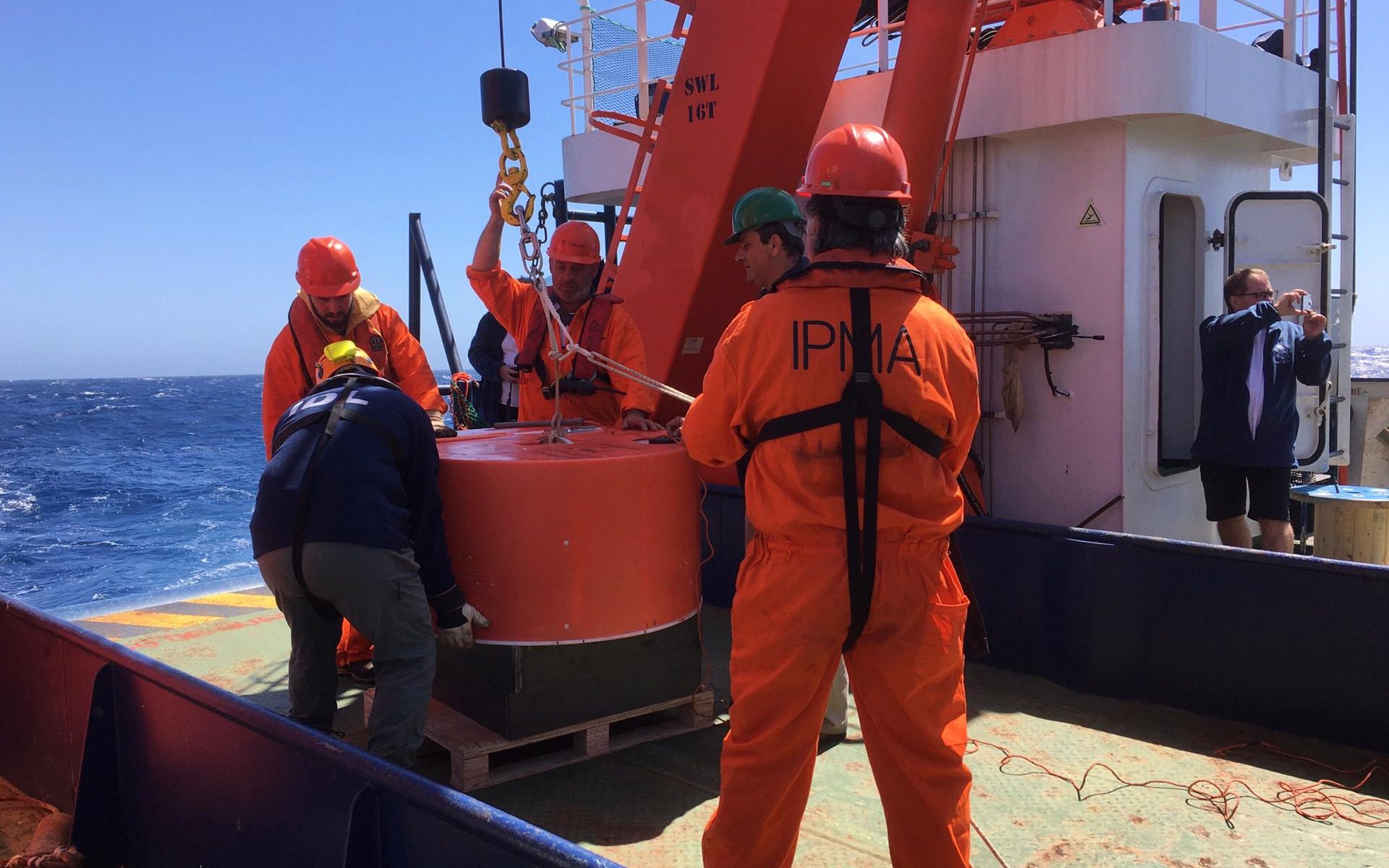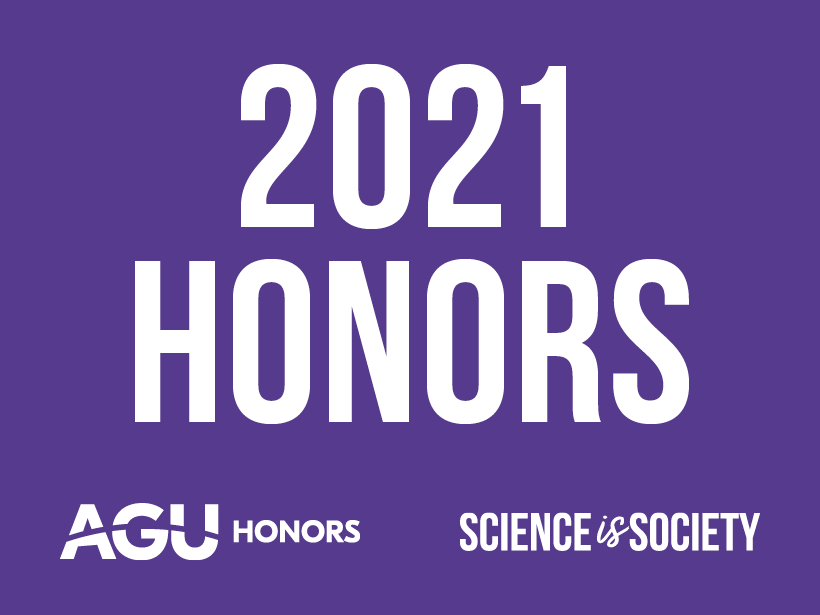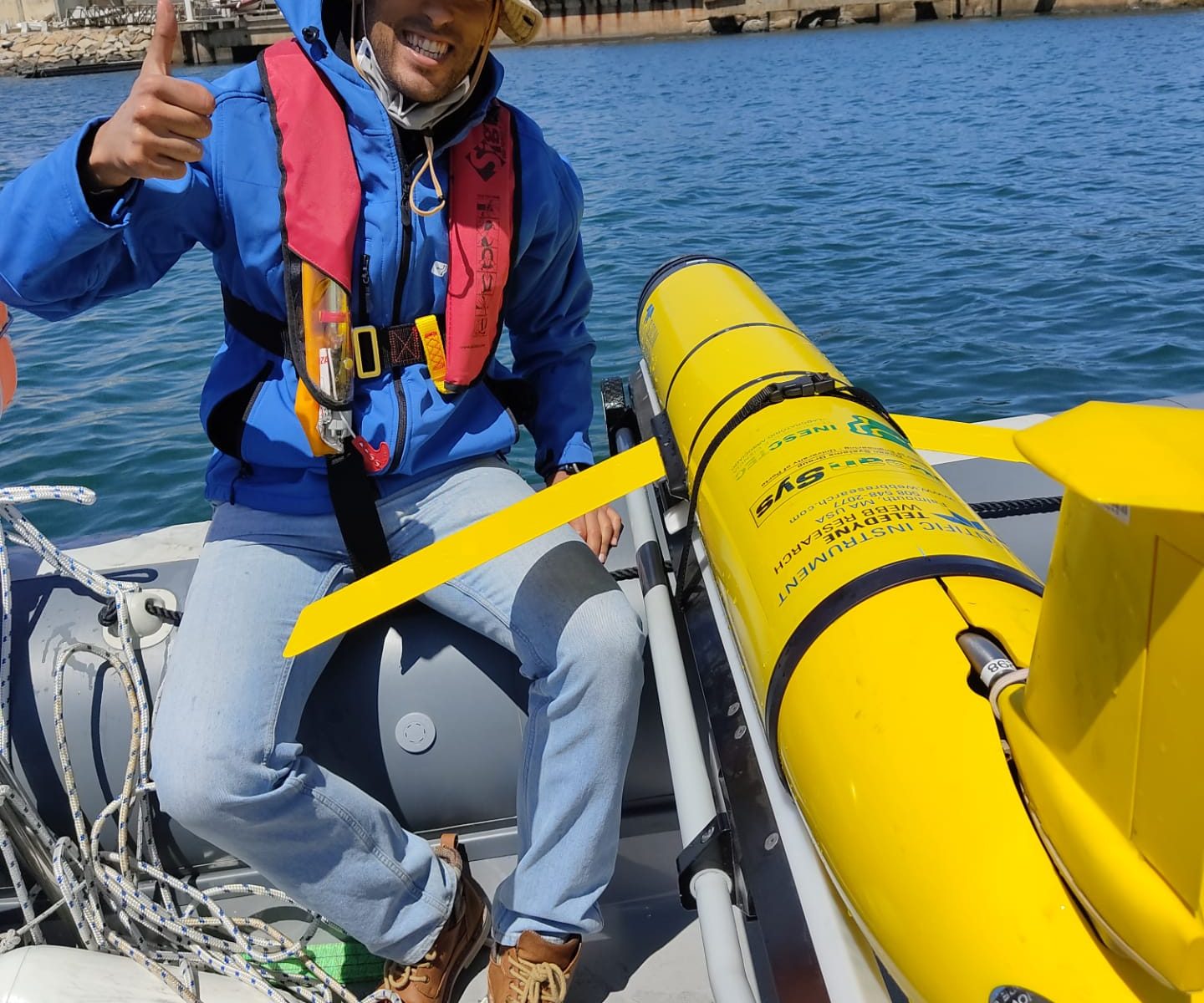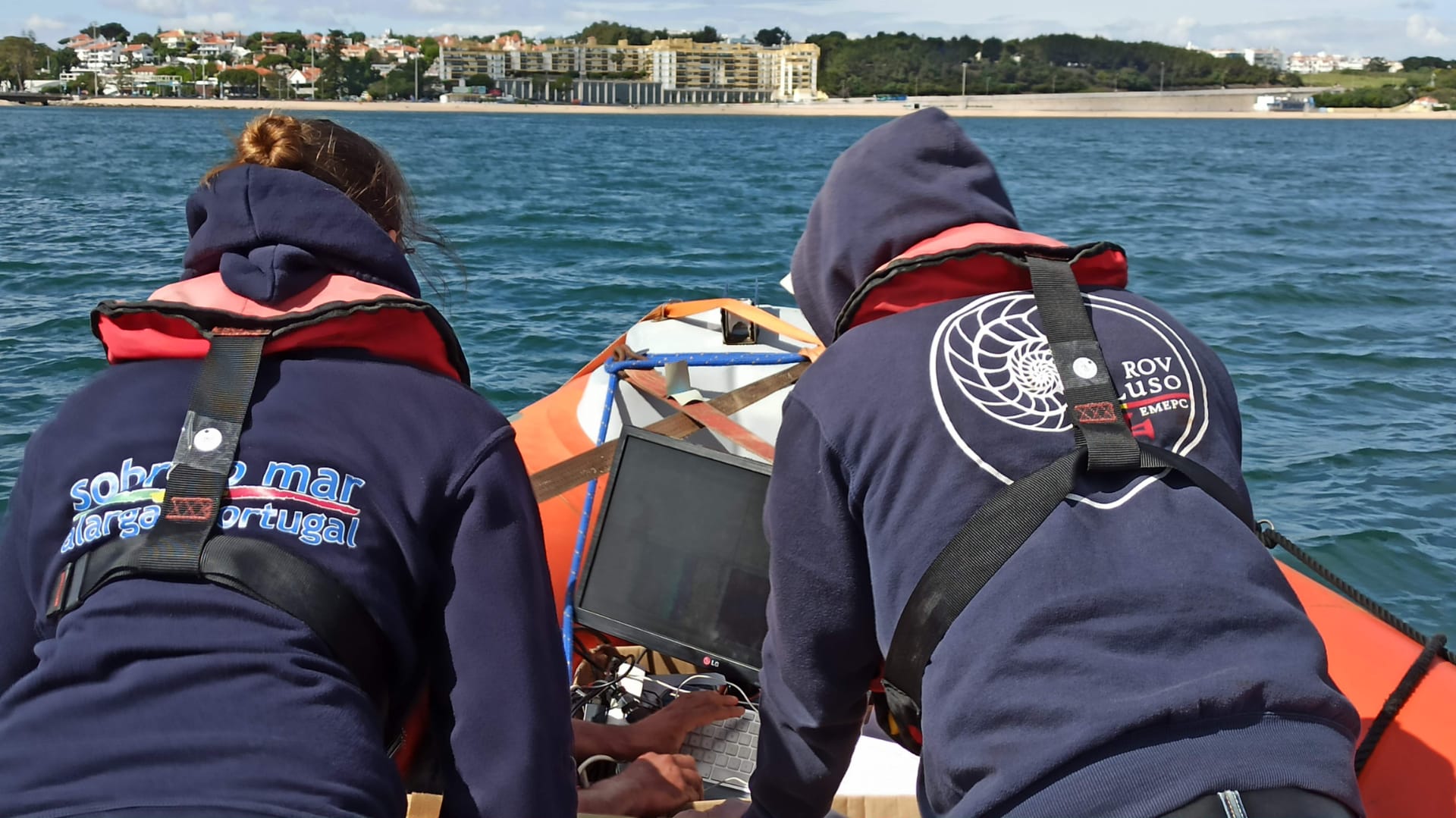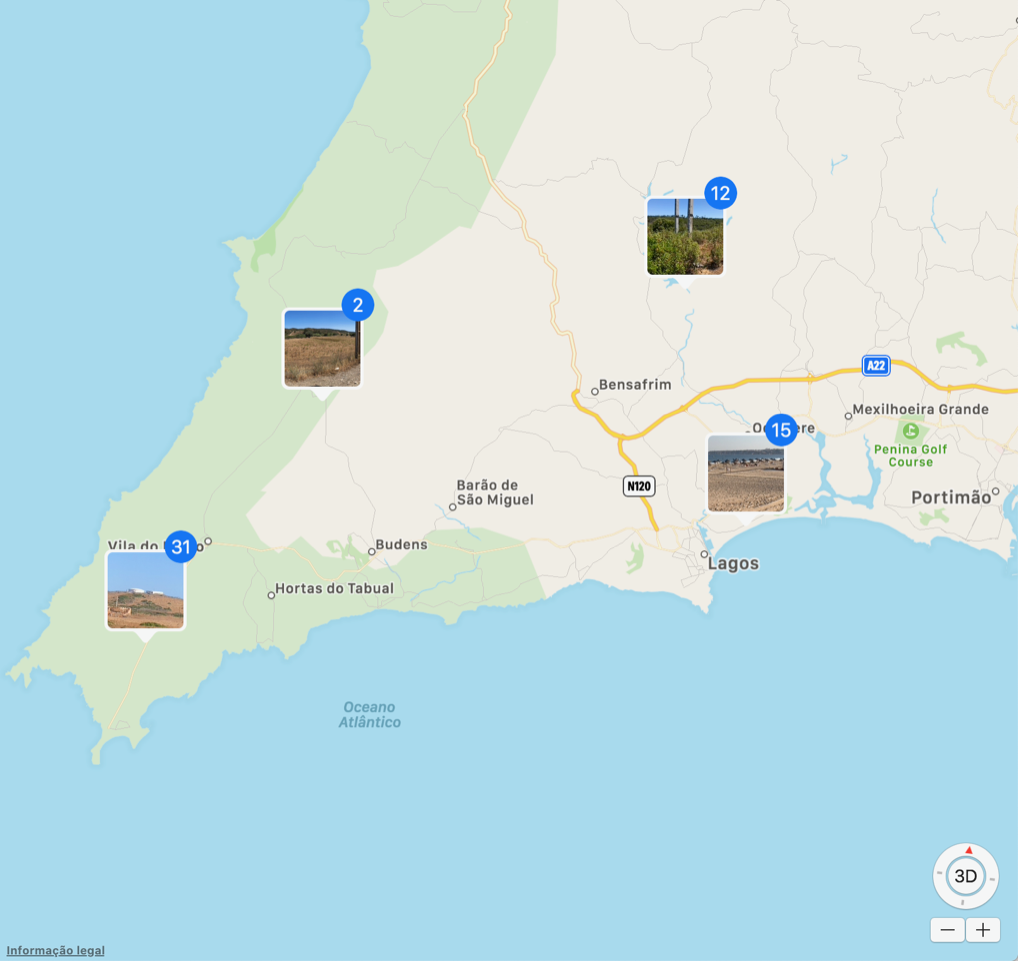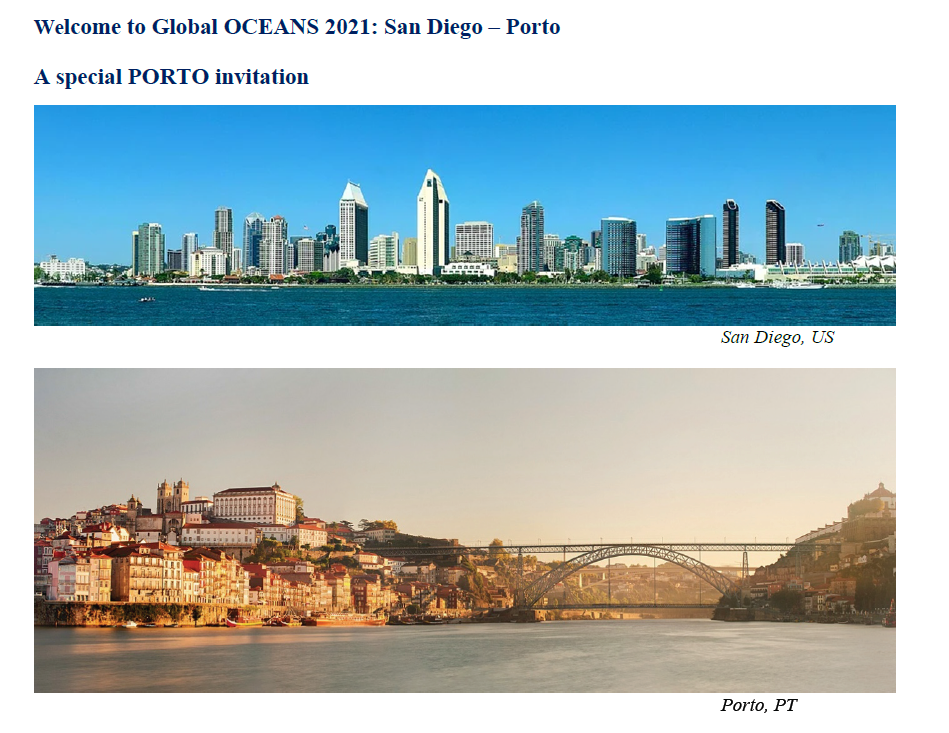Members of IPMA’s Research Vessels and Observatories Unit have published the article “Portuguese European Multidisciplinary Seafloor and Water Column Observatory Initiative” in the specialty journal Frontiers in Marine Science, available at: https://doi.org/10.3389/fmars.2022.849150
Fatima Abrantes receives the AGU 2021 Ambassador Award
EMSO-PT member Fátima Abrantes is the recipient of the American Geophysical Union’s (AGU) Ambassador 2021 award.
AGU is a non-profit organisation that brings together researchers and communicators in the geosciences and space sciences. The Ambassador Award is presented annually to up to five recipients in recognition of their contributions in one or more of the following areas: social impact, service to the geosciences and space sciences community, scientific leadership and talent or career development.
This award is an important recognition from the whole scientific community in the geosciences and space sciences of the excellence of the work of this researcher in research, education and communication of science.
Fátima Abrantes is a senior researcher at the Marine Geology Division of IPMA and coordinator of EMSO Gold laboratories in Lisbon. She holds a PhD in Marine Geology and is dedicated to the study of the history of the oceans in the geological past. She has authored 110 scientific papers and co-edited the book “Reconstructing Ocean History: A Window into the Future and The Climate of the Mediterranean Region”.
About the award, Fátima Abrantes says: “It is a distinction that came as a total surprise, I never expected it! It is however very good to get a peer recognition, at international level, for the work done since 1990 in the formation and development of a research group in Palaeoceanography and Palaeoclimate in Portugal, of all the effort to affirm the value of the group and the country at International level, through the education of many young researchers from Portugal and abroad. Despite the difficulties that always had to be faced at national level, this international recognition confirms that fighting for a dream is worth it!”
Fátima Abrantes joins other scientists, leaders, educators, journalists and communicators from all over the world whose extraordinary contribution has allowed to expand the frontiers of science.
AGU will celebrate this year’s winners during the #AGU21 Fall Meeting, to be held 13-17 December 2021 in New Orleans, Los Angeles and, online, around the world.
Data portal – new video tutorials available
EMSO ERIC has released a series of tutorials helping users to work with all data series available on the data portal. You can view the videos here: https://data.emso.eu/documents/emso-eric-tutorials
EMSO ERIC has advanced the data portal to permit users to view and analyse data on the VRE based JupyterHub. JupyterHub removes the burden of downloading software, by allowing users free online access to a data analysis platform. There is also the Jupyter Notebook Widget that assists in flagging erroneous datapoints (amongst other things).
The “Make your Virtual Environment” video give users instructions on how to use Python, with handy command hints.
EMSO Portugal’s datasets will all be available on the EMSO ERIC data portal.
Water column profiler launched in the Gulf of Cadiz
The RV Mario Ruivo sailed out from Lisbon on 23rd May with three tasks:
- to launch the water column profiler in the Gulf of Cadiz
- to launch the OBSs (developed by IDL, FCUL)
- and to test the slocum in open waters (INESC TEC).
Thankfully, the seas were managable and all three tasks were completed successfully! You can watch the highlights in these short videos here:
Thanks to everyone on board for their tireless efforts during the long days of work.
Acknowledgements: Mafalda Carapuço, Paulo Relvas, Carlos Sousa, Anibal Matos, Carlos Corela, Luis Matias, Afonso Loureiro
Slocum tests a success!
The INESC team was out at Leixões in the first week of May to test the newly acquired sensors that have been added to the Slocum. The Slocum Glider G2 is an unmanned underwater vehicle, capable of diving to 1000 m water depth using a buoyancy engine which is capable of altering the buoyancy of the vehicle.
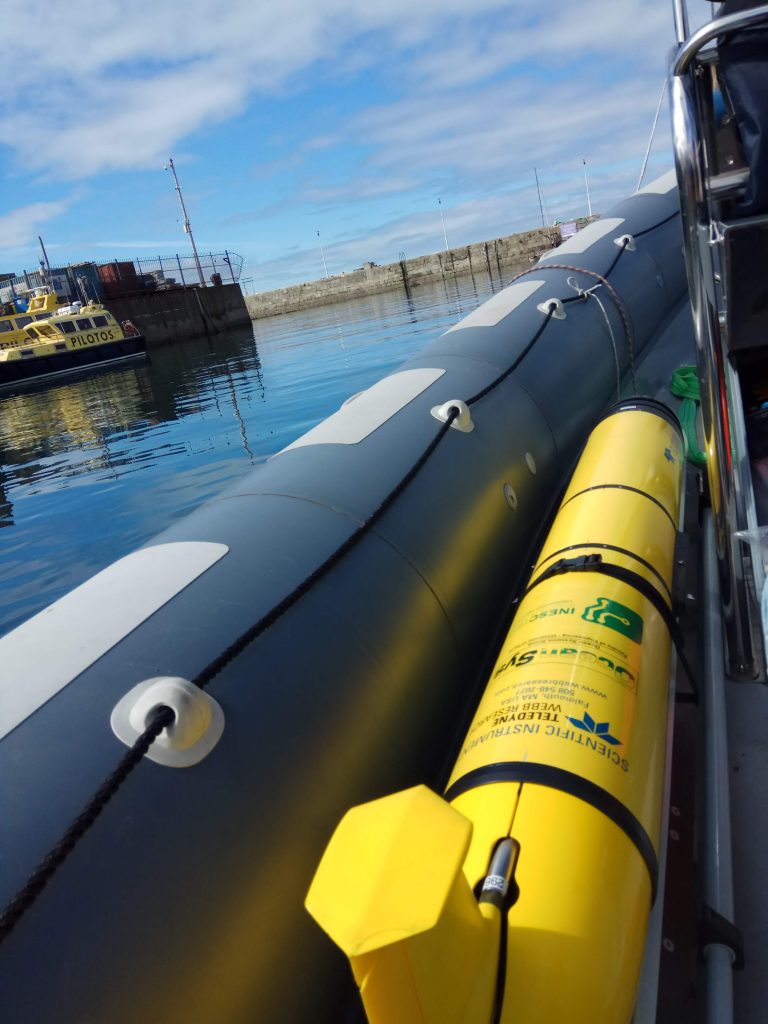
The “captain” of the sea trials was Jorge Barbosa, who was accompanied by glider pilots Nuno Abreu and Eduardo Almeida.
The sensors that were tested, were the:
SBE PUMPED CTD SENSOR – conductivity, salinity and density,
ECO Triplet FLBBCD-SLC – fluorescence/Chlorophyll-a
AANDERAA OPTODE 4831 – dissolved oxygen
The launch and recovery procedures were tested successfully from the bow of INESC’s rigid inflatable boat (a first…!). They were also able to perform pre-launch tests (readings from internal sensors to make sure everything is working properly). Iridium communications (satellite) between the glider and the server back at the INESC lab facilities were also successfully completed.
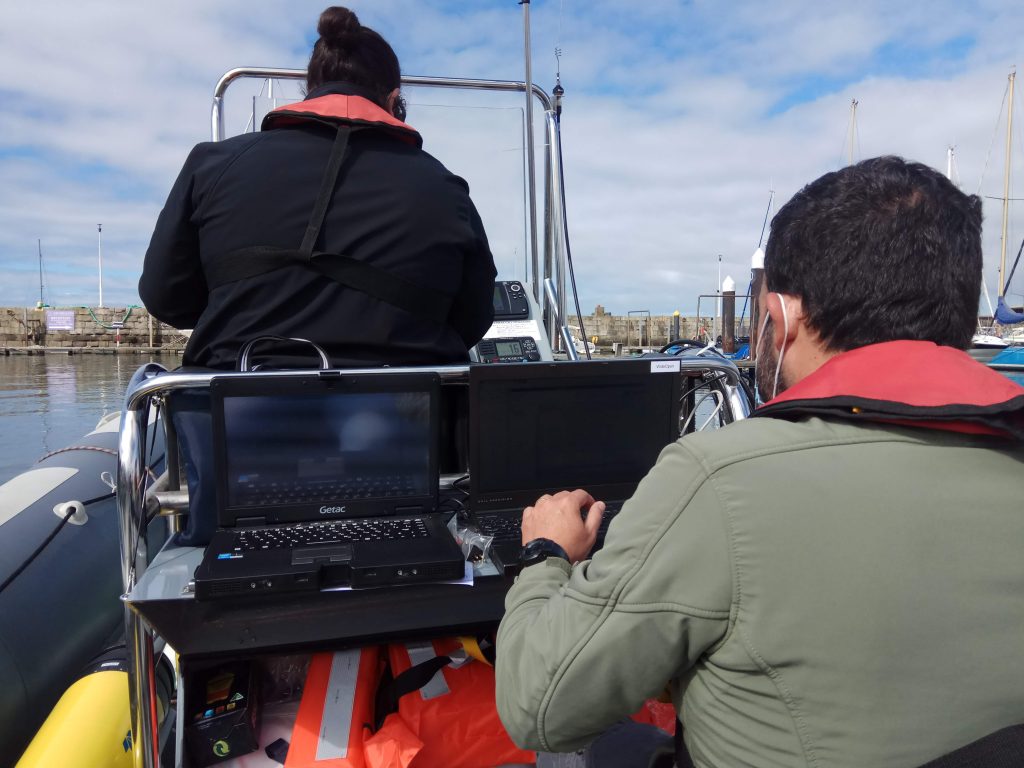
These trials was performed in sheltered waters inside the harbour, and the team intends to test the equipment out at sea as soon as conditions are favourable.
ROV Luso multibeam tests concluded
Since the initial tests carried out at the EMEPC indoor pool, the multibeam (purchased by EMSO-PT funds), was taken to the water in the last week of April. The tests were done near the marina of Oeiras, in order to have a sheltered area where the movements of the vessel were minimized.
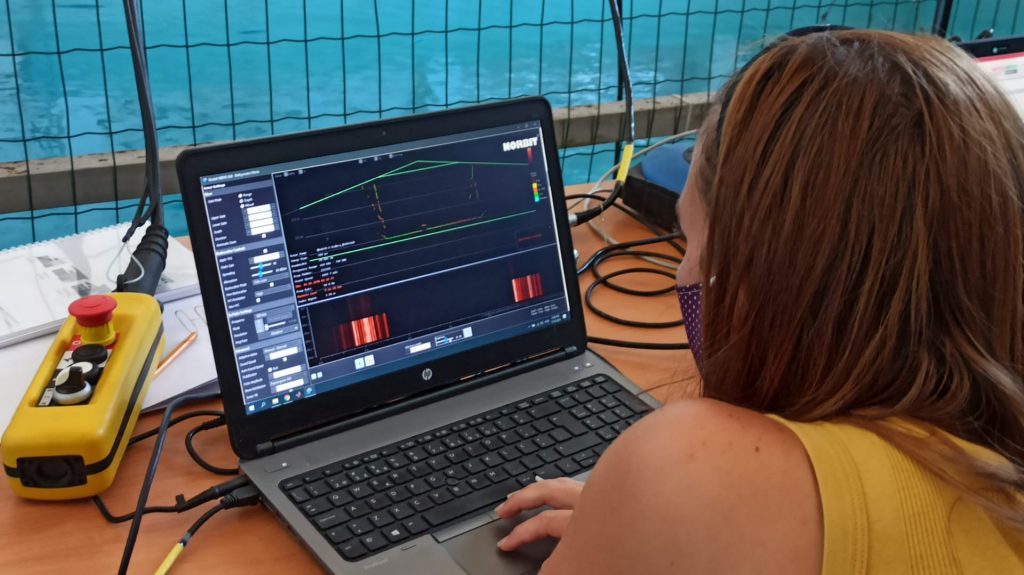
The purpose of the tests was to verify the operation of the equipment in an environment closer to the real operational environment, to test the communication with the various complementary systems and their software, to look for a real data collected in a real environment so that the people who will operate the equipment gain some sensitivity to the entire acquisition process.
The next step will be to integrate the system into the ROV Luso, which is expected to happen during the first half of June.
The crew involved in these test were the 4 members of the operational team of EMEPC, that will be also working with this equipment in ROV Luso: António Calado, Andreia Afonso, Miguel Souto e Bruno Ramos.
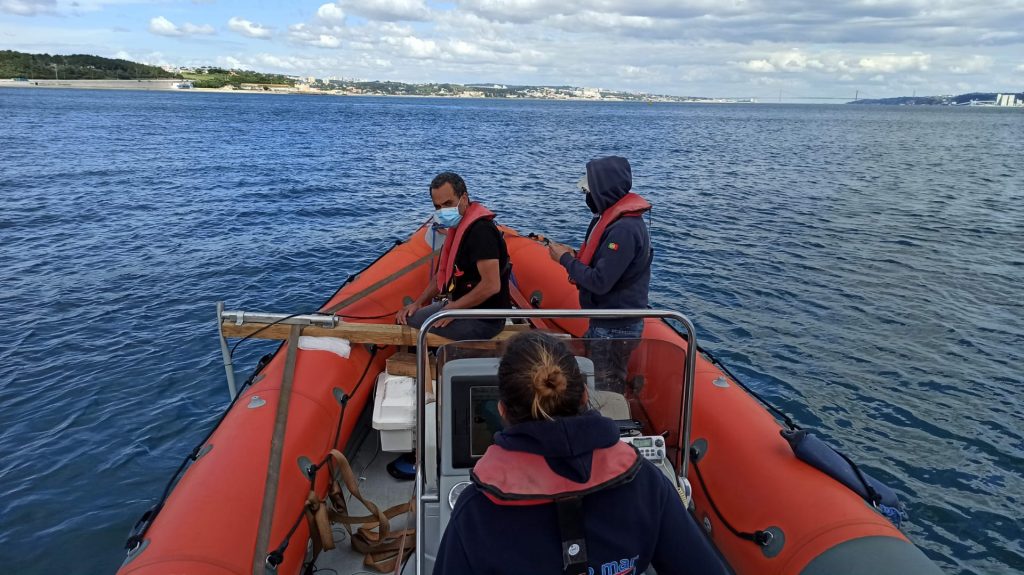
During the months of July and August, the ROV Luso will be in operation as part of the iMirabilis campaign, which will have a leg between Vigo and Las Palmas coordinated by EMEPC and a second Leg in Cape Verde coordinated by the Instituto Espanol de Oceanografia.
Earthquake Early Warning System will be installed in the Algarve
The University of Évora (UÉ) is expanding the national seismic monitoring network with the installation of 4 new stations, thus enabling the development of an Earthquake Early Warning System (EEWS), including those generated in the Atlantic region adjacent to the Portuguese territory.
This work is funded by EMSO-PT and forms part of the objectives set out, which is to generate land-based seismic data to support the deep sea data produced at the Cadiz Observatory.
Inscrição aberta para a Conferência OCEANS 2021
A conferência OCEANS 2021 é um encontro híbrido, realizado em San Diego, EUA e Porto, Portugal, de 20-23 de Setembro de 2021. Este evento irá misturar a participação presencial em San Diego e a participação virtual organizada pelo Porto. Os membros da EMSO-PT estão envolvidos na organização e participarão em temas relacionados com inovação e tecnologia. Os principais temas da conferência são:
- Abertura da Fronteira Oceânica: Uma Nova Era de Descobertas
- Ciência e tecnologia dos oceanos para o benefício da humanidade
Saiba mais no site oficial https://global21.oceansconference.org/
Register for the OCEANS 2021 Conference
The OCEANS 2021 conference is a hybrid joint venture, held at San Diego, USA and Porto, Portugal from September 20-23, 2021. This event will mix both in-person participation in San Diego and virtual participation organized by Porto. EMSO-PT members are involved in the organisation and will be participating in themes related to innovation and technology. The main overarching themes of the conference are:
• Opening the Ocean Frontier: A New Age of Discoveries
• Ocean science and technology for the benefit of humankind
Find out more on the official website https://global21.oceansconference.org/
new video launched about EMSO-PT
IPMA released today a video describing the EMSO-PT project and the importance of sea observatories.This movie presents the water column profiler operated by CCMAR – Centro de Ciências do Mar and the deep sea observatory EGIM – EMSO Generic Instrument Module.
You can watch the video here: https://youtu.be/vEoTMs9smvE

